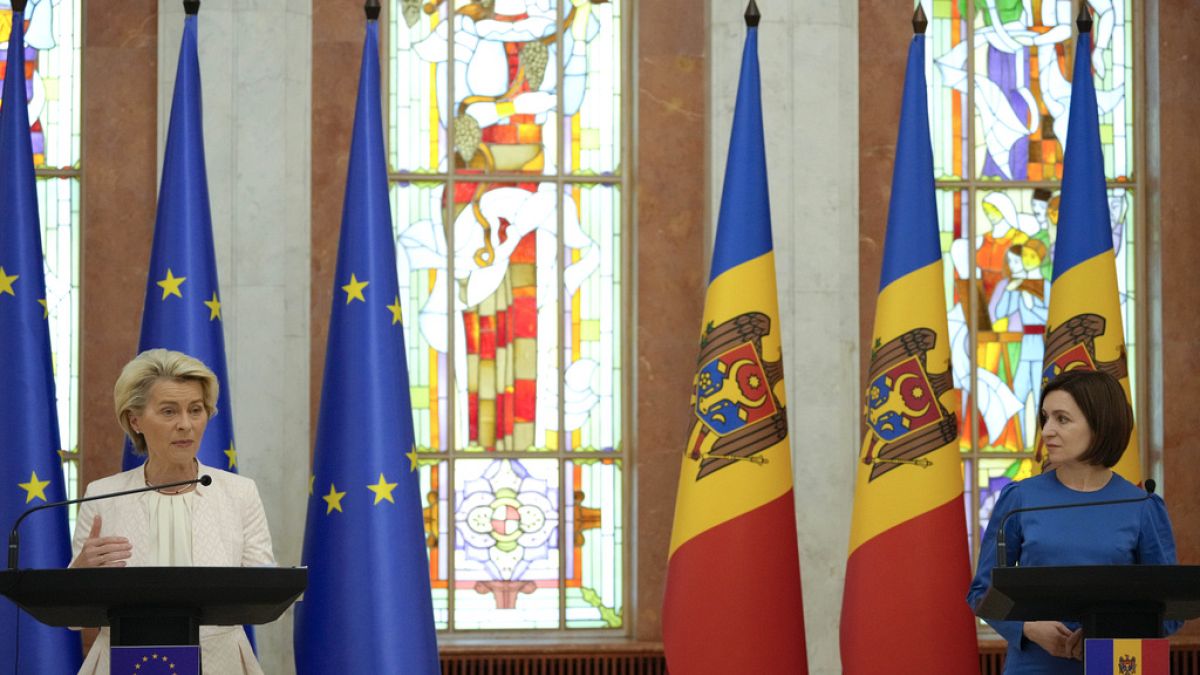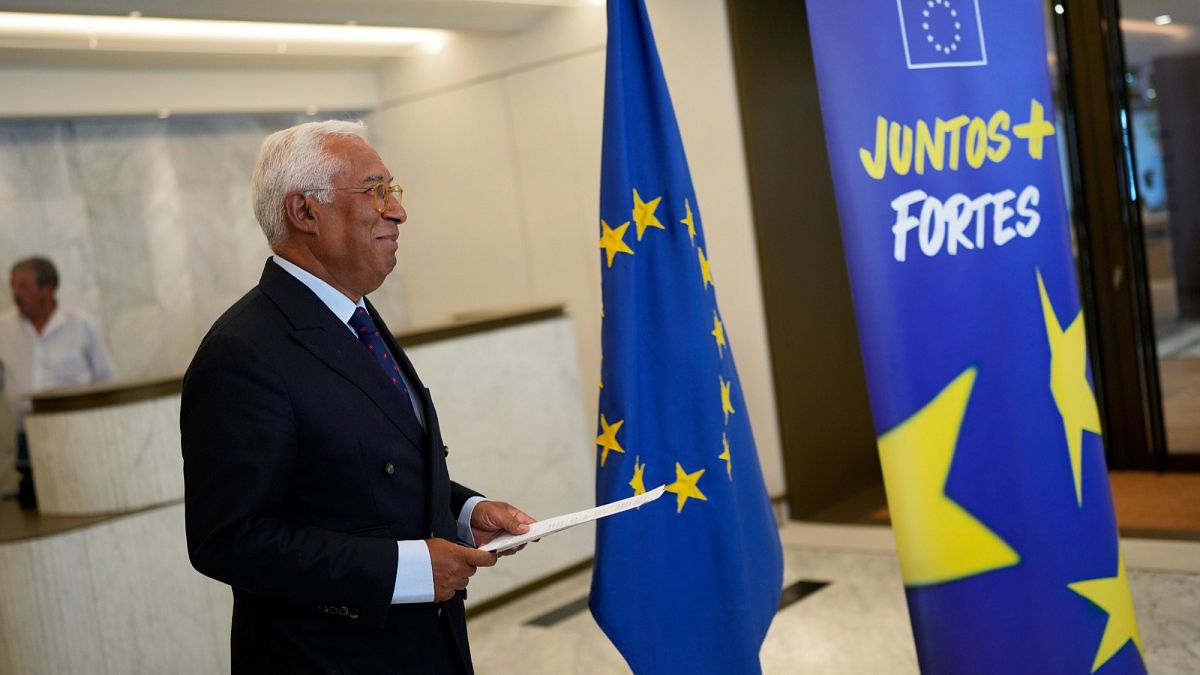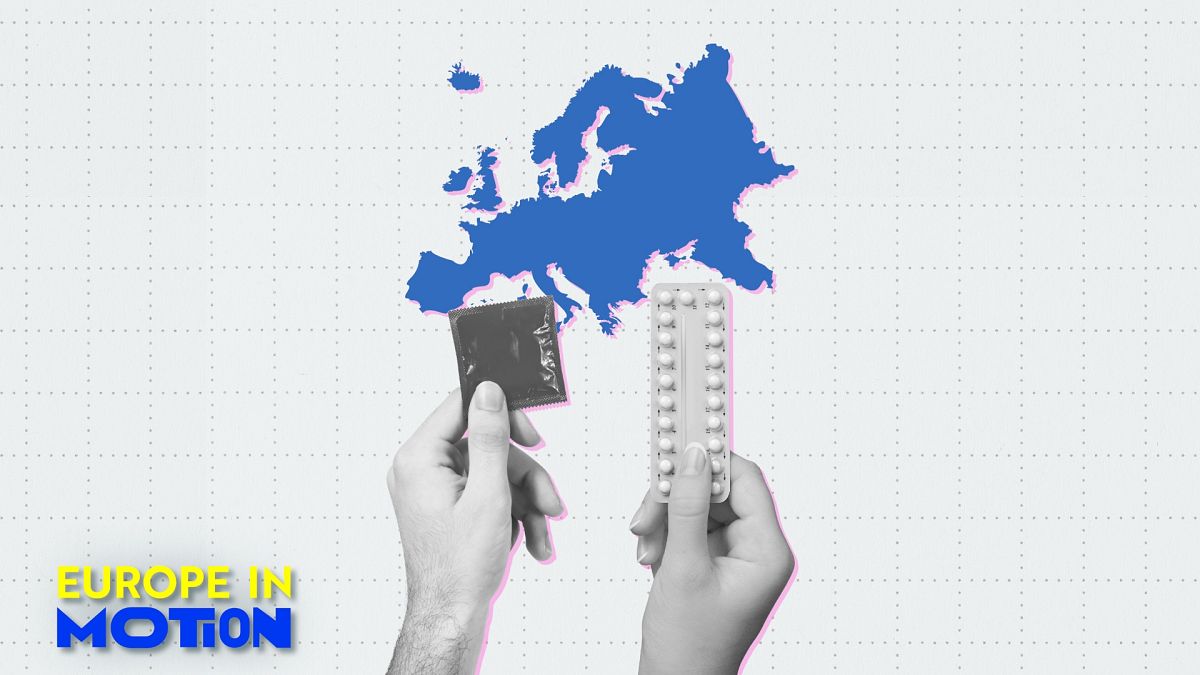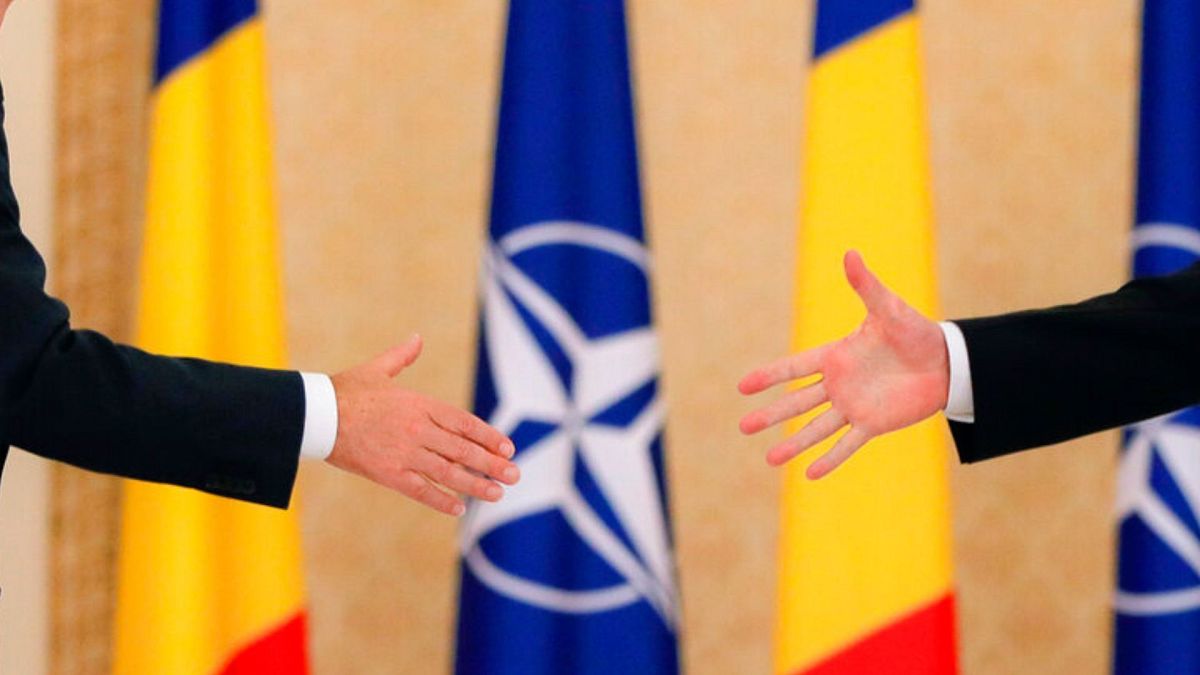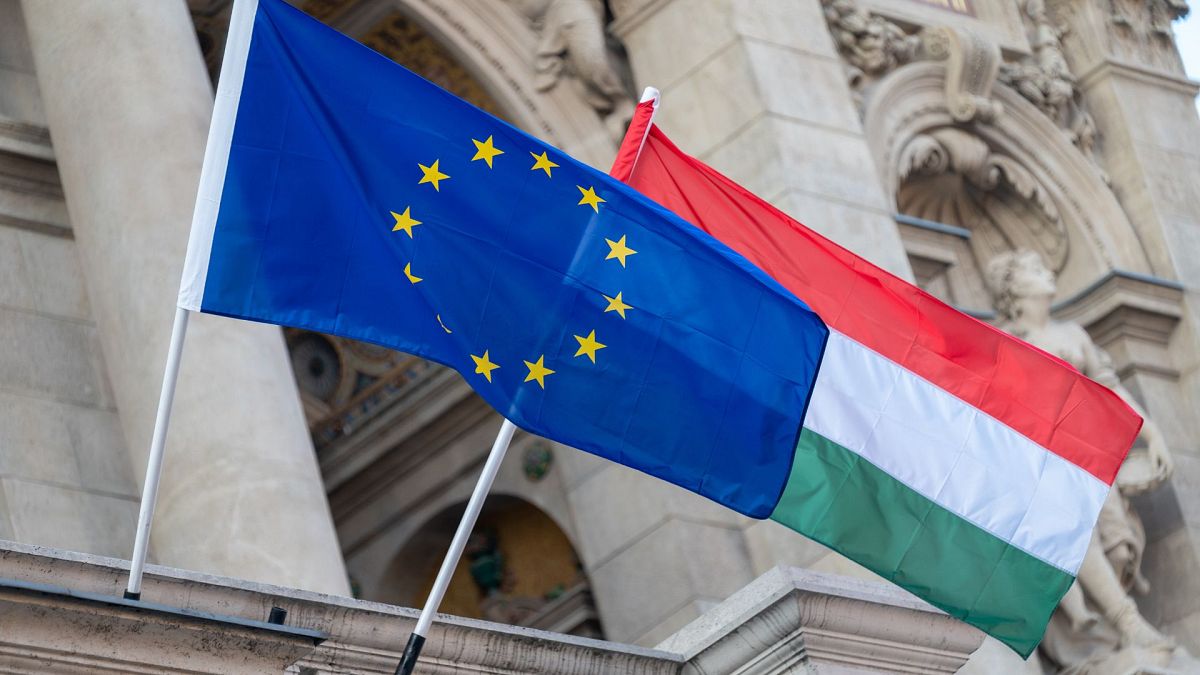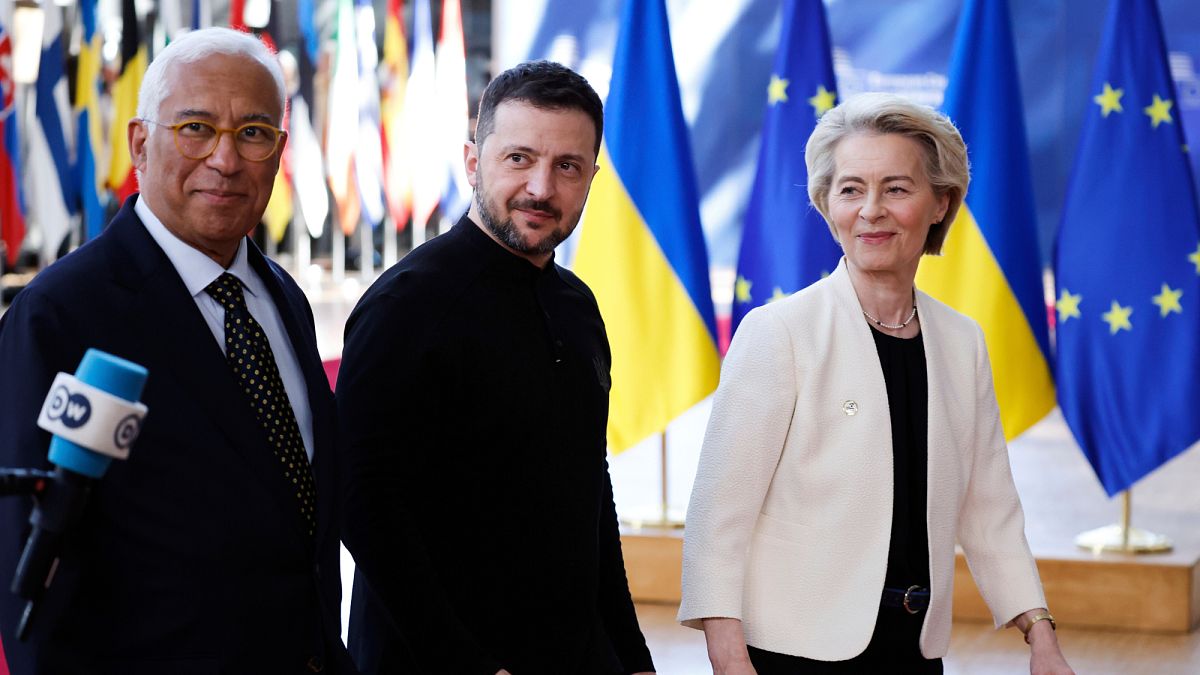Published on
As Moldova prepares to host a pivotal bilateral summit with the European Union this Friday in Chișinău, President Maia Sandu and her pro-European government are making a concerted push to accelerate the country’s accession to the EU – potentially outpacing neighbouring Ukraine.
Despite repeated hybrid attacks from Russia and economic headwinds, Moldova is eager to present its recent progress in aligning with EU standards as grounds for decoupling its enlargement track from Ukraine’s. But Brussels remains cautious.
A source within the Danish EU rotating presidency told Euronews that “the decoupling of the enlargement process between Moldova and Ukraine is not for now.” EU leaders are wary that allowing Moldova to pull ahead might send the wrong signal – suggesting strategic acquiescence to Russia’s destabilising goals in the region.
From the EU’s perspective, enlargement is not just a bureaucratic process; it’s a geopolitical message. Maintaining a unified approach to Moldova and Ukraine is seen as a way to underscore solidarity and resist external manipulation.
Romanian MEP Siegfried Mureșan, head of the EU–Moldova Parliamentary Association Committee, is one of Moldova’s most vocal advocates in Brussels. He argues that the small nation is not only progressing quickly but would also require a lighter lift from EU institutions compared to Ukraine.
“Integrating the Republic of Moldova into the EU will be a smaller effort,” Mureșan told Euronews. “The integration of small countries is easier than the integration of bigger countries. Moldova is a small country, and with our support, it can achieve a lot with sums that are not significant for the EU—but are transformative for Moldova.”
Growth plan and economic resilience
The EU is expected to unveil a three-year, €1.9 billion growth plan for Moldova – partly funded through loans and grants with the backing of the European Investment Bank. The investment aims to boost Moldova’s economy and reduce its vulnerability to external pressures, particularly from Russia.
“We know Russia blackmailed it with high energy prices,” said Mureșan. “The country suffered under high inflation; we need to strengthen its economy.”
Moldova’s energy infrastructure has undergone a significant transformation since 2022. It is now connected to the European electricity grid, and the EU has financed major upgrades to its domestic distribution systems. Chişinău has also committed to generating 27% of its energy from renewable sources by 2030.
Despite setbacks – including a slowdown attributed to the energy shock from the war in Ukraine – the European Bank for Reconstruction and Development (EBRD) considers Moldova’s economy resilient. In a landmark shift, over 50% of Moldovan exports went to the EU in 2024 – the highest in the country’s history.
Hybrid threats and strategic pressure from Russia
Brussels remains acutely aware of the internal and external pressures facing Moldova. While public opinion is split between pro-Western and pro-Russian sentiment, the breakaway Transnistrian region – still under de facto Russian control – remains a source of instability.
“The Russian-speaking minority and companies in the so-called Transnistrian region benefit from European integration. More than 70% of their exports go to the European market. So I think Russia will continue to try to destabilise it,” said Mureșan, emphasising the paradox of Russian influence in the region.
Security cooperation is already deepening. Under the EU–Moldova Security and Defence Partnership, the EU has allocated €197 million through the European Peace Facility (2021–2025) to modernise Moldova’s armed forces.
Moldova and Ukraine both applied for EU membership in March 2022 and were granted candidate status in June that year. Formal accession talks began in June 2024 – but how, and when, each country progresses remains politically sensitive.
For now, Brussels appears unwilling to split the tracks. But if Moldova can continue demonstrating tangible reform, economic resilience, and geopolitical reliability, the case for accelerated accession may prove harder to ignore.



